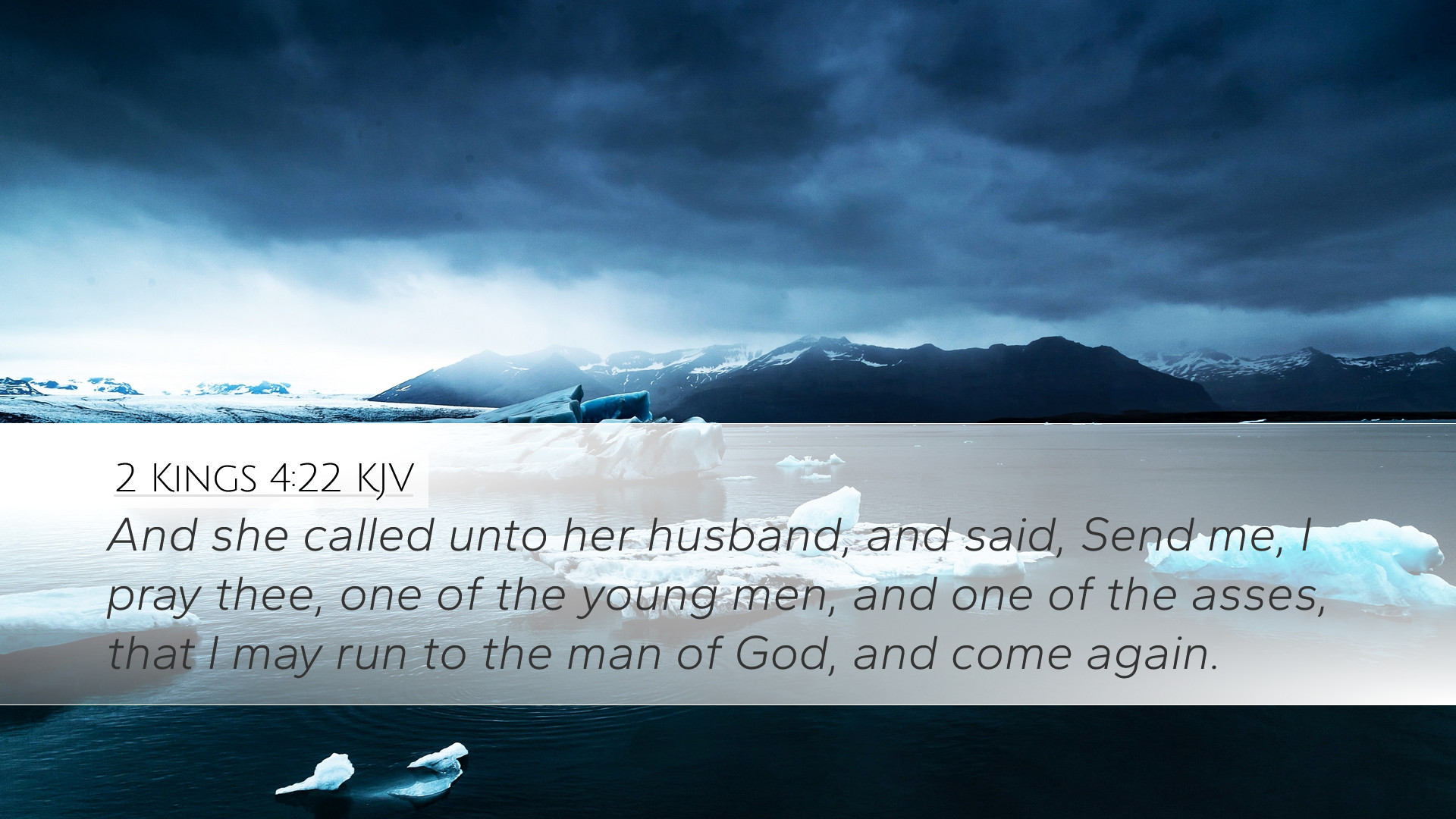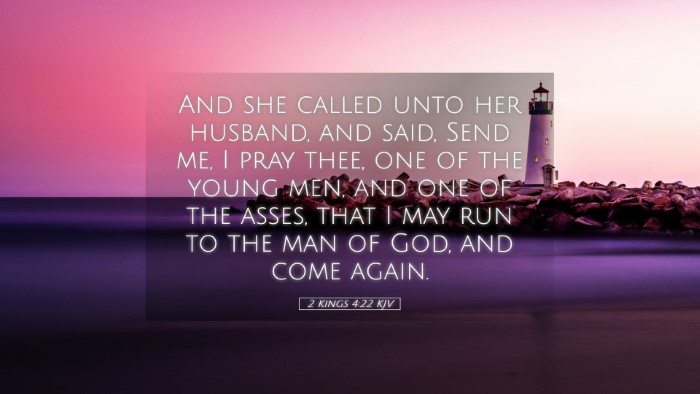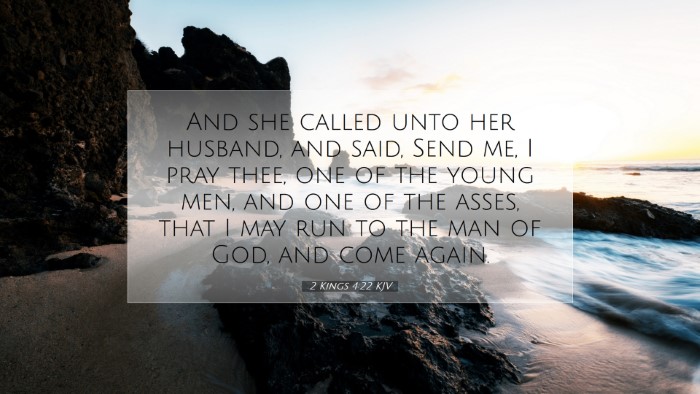Bible Commentary on 2 Kings 4:22
The verse 2 Kings 4:22 states: "And she called unto her husband, and said, Send me, I pray thee, one of the young men, and one of the asses, that I may run to the man of God, and come again." This passage is a profound moment within the narrative of the Shunammite woman, highlighting her faith and determination amidst a personal crisis.
Contextual Background
The account of the Shunammite woman begins in 2 Kings 4:8-37, where she is introduced as a notable woman who showed hospitality to Elisha, the man of God. Her act of kindness resulted in the promise of a son, which came to fruition. However, it is in this particular verse that we see her resolve when faced with tragedy.
Analysis of the Verse
In examining 2 Kings 4:22, we can highlight several key themes:
-
Faith and Determination:
The Shunammite woman's decision to seek Elisha demonstrates a profound faith. She does not succumb to despair over the death of her son but instead takes immediate action. This reflects a mindset acknowledged by Matthew Henry, who notes how her urgency signifies her reliance on divine intervention.
-
Role of the Husband:
The conversation with her husband shows the woman’s respect for her spouse and the balance within their relationship. Albert Barnes comments on this dynamic, emphasizing that her request is not made in isolation but rather in partnership with her husband.
-
Request for Help:
Her plea for one of the young men and an ass to travel reflects both her social status and her urgency. Adam Clarke points out that her choice to request these specific means indicates that she seeks not only support but also a swift response to her critical situation.
Theological Insights
The theological implications of this verse can be examined through various lenses:
-
God's Providence:
The Shunammite woman's confidence in seeking Elisha can lead us to reflect on God's providence in crises. Her actions suggest an intimate understanding of God’s ability to intervene through his prophets, aligning with the views of Henry, who discusses the importance of God's representatives in times of need.
-
Intercession and Prayer:
The act of seeking Elisha serves as a model for intercession. Just as the Shunammite woman sought help from God's man, believers today are encouraged to seek God through prayer and the community of faith. This underscores the communal aspect of faith as emphasized by Barnes.
-
Hope in Despair:
The Shunammite woman’s proactive attitude in the face of grief is an embodiment of hope. Clarke illustrates how her journey to find Elisha symbolizes the journey of faith, where hope fuels the pursuit of divine assistance even amidst anguish and sorrow.
Application for Today's Believers
The narrative surrounding 2 Kings 4:22 yields valuable lessons for believers today:
-
Responding to Crisis with Action:
Much like the Shunammite woman, believers are called to respond to crises with action rather than despair. Her example teaches that faith often requires movement; seeking help is an integral part of the faith journey.
-
Valuing Family Dynamics:
The interaction with her husband reminds us of the importance of family and community in times of trouble. This verse can inspire couples to communicate effectively and seek God together in their challenges.
-
Heralding God's Promise:
As the Shunammite woman sought the man of God, believers are encouraged to pursue God's promises actively. This pursuit reflects the understanding that God is ever-present in our lives.
Conclusion
In summary, 2 Kings 4:22 encapsulates themes of faith, action, community, and hope. The Shunammite woman's resolute actions provide a profound example for believers—encouraging them to seek God earnestly in desperation while continuing to embody faith and resilience. As pastors, students, theologians, and Bible scholars reflect on this passage, may they draw from its depth to enrich their understanding of God’s work in times of need.


